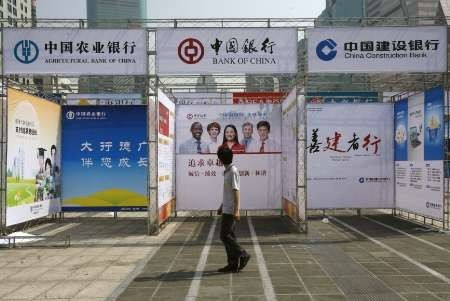China denies report on suspending dynamic reserve plans

China's central bank denied on Tuesday that the country has suspended plans to tailor reserve requirement ratios for Chinese banks as part of efforts to rein in rampant bank lending.
The denial comes after New Century Weekly Magazine said China's cabinet had axed plans to impose dynamic differentiated required reserve ratios for banks because the implementation formula was too complicated.
There is no such thing, and the report is incorrect, an official at the central bank's press office told Reuters. But she declined to give details on how the plan would be carried out.
The People's Bank of China first unveiled plans for dynamic differentiated required reserve ratios last year but has never explained how it would work.
Although sketchy details have been leaked in the Chinese media, the opaque nature of the plan has led to conflicting reports.
Still, it is widely believed that it requires the central bank to review banks' balance sheets every month before adjusting the amount of cash they must hold in reserve.
China has for years imposed different reserve requirement ratios on banks, depending on how much they were lending.
But a dynamic differentiated system is a departure from the past because the central bank would review lenders' balance sheets every month to step up control of bank lending.
However, some analysts and bankers said such a plan was too complicated, rendering it a hard sell to the Chinese cabinet, which has the final say on China's monetary policy.
The amount of money held in bank reserves has emerged as a central pillar in China's monetary policy in the past year, with abundant cash in the economy seen as one of the main drivers of inflation.
China's inflation, running near two-year highs, is expected to quicken in coming months as global commodity prices and domestic wages climb.
Worried that rising prices could stir social unrest, China has stepped up its anti-inflation campaign in recent months. It raised banks' reserve requirements to a record high on Friday, the second rise this year.
© Copyright Thomson Reuters {{Year}}. All rights reserved.




















